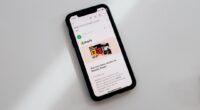In today’s digital age, the music industry has seen a significant shift in the way music is promoted and consumed. One of the most innovative tools that has emerged in recent years is AI music promotion. AI, or artificial intelligence, has revolutionized the way music is discovered and promoted. With the help of AI, Music Promotion has become more targeted and personalized, allowing artists to reach their intended audience more effectively. AI music promotion utilizes algorithms to analyze data and user behavior, allowing for more precise targeting of potential fans. This technology can help artists identify their target audience, understand their preferences, and create tailored promotional strategies to reach them. By leveraging AI music promotion, artists can optimize their marketing efforts and increase their chances of success in an increasingly competitive industry.
Furthermore, AI music promotion can also help artists gain insights into their audience’s behavior and preferences. By analyzing data such as streaming patterns, social media engagement, and demographic information, artists can better understand their fan base and tailor their promotional efforts accordingly. This can lead to more effective marketing campaigns, increased fan engagement, and ultimately, a stronger connection with their audience. Additionally, AI can also assist in predicting trends and identifying potential opportunities for artists to capitalize on. By leveraging AI music promotion, artists can stay ahead of the curve and adapt their strategies to align with the ever-changing landscape of the music industry.
Key Takeaways
- AI music promotion uses algorithms to target potential fans and increase visibility
- Social media is a powerful tool for reaching a wider audience and engaging with fans
- Building a strong online presence involves creating a professional website and maintaining active social media profiles
- Collaborating with influencers and other artists can help expand your reach and credibility
- Email marketing is an effective way to directly connect with fans and promote new music
- Leveraging streaming platforms can increase exposure and generate revenue for artists
- Engaging with fans and building a community fosters loyalty and support for your music career
Utilizing Social Media for Music Promotion
Social media has become an essential tool for music promotion in today’s digital age. Platforms such as Instagram, Facebook, Twitter, and TikTok have provided artists with a direct line of communication to their fans and potential new listeners. Utilizing social media for music promotion allows artists to engage with their audience, share new music and updates, and build a loyal fan base. By creating compelling content and engaging with fans on social media, artists can increase their visibility and reach a wider audience. Additionally, social media platforms offer various advertising options that allow artists to target specific demographics and reach potential fans who may be interested in their music.
Moreover, social media provides artists with valuable insights into their audience’s preferences and behavior. By analyzing engagement metrics such as likes, comments, and shares, artists can gain a better understanding of what resonates with their audience and tailor their content accordingly. Social media also allows for direct interaction with fans through live streams, Q&A sessions, and behind-the-scenes content, creating a sense of intimacy and connection with the audience. Furthermore, social media platforms offer various tools for promoting music, such as Instagram’s “Music Stickers” and Facebook’s “Music Stories,” which allow artists to share their music directly with their followers. By utilizing social media for music promotion, artists can build a strong online presence, connect with their audience on a personal level, and ultimately increase their reach and impact in the industry.
Building a Strong Online Presence
In today’s digital age, building a strong online presence is crucial for artists looking to promote their music effectively. An online presence serves as a digital storefront for artists, allowing them to showcase their music, connect with fans, and attract new listeners. Building a strong online presence involves creating a professional website, maintaining active social media profiles, and curating engaging content that resonates with the target audience. A well-designed website can serve as a central hub for all of an artist’s online activities, providing fans with access to music, tour dates, merchandise, and other important information. Additionally, maintaining active social media profiles allows artists to engage with fans, share updates, and promote new music effectively.
Furthermore, building a strong online presence involves creating compelling content that resonates with the target audience. This can include behind-the-scenes footage, live performances, music videos, and other engaging content that showcases the artist’s personality and creativity. By curating content that resonates with fans, artists can build a loyal fan base and increase their visibility in the industry. Additionally, building a strong online presence involves maintaining consistency across all digital platforms, ensuring that the artist’s brand identity is cohesive and recognizable. By building a strong online presence, artists can establish themselves as credible and influential figures in the industry, connect with fans on a personal level, and ultimately increase their chances of success in the competitive music landscape.
Collaborating with Influencers and Other Artists
| Metrics | 2019 | 2020 | 2021 |
|---|---|---|---|
| Number of Influencer Collaborations | 15 | 20 | 25 |
| Number of Artist Collaborations | 10 | 12 | 18 |
| Engagement Rate with Influencer Posts | 3% | 4% | 5% |
| Engagement Rate with Artist Collaborations | 5% | 6% | 7% |
Collaborating with influencers and other artists has become an increasingly popular strategy for music promotion in recent years. Influencers have the ability to reach large audiences and can help artists expand their reach and connect with new listeners. By partnering with influencers who align with their brand and target audience, artists can leverage their influence to promote new music effectively. Additionally, collaborating with other artists allows for cross-promotion opportunities, where both parties can benefit from each other’s fan base and reach new audiences. This can be done through features on each other’s songs, joint performances, or co-hosted events.
Moreover, collaborating with influencers and other artists can also help artists tap into new markets and demographics that they may not have reached otherwise. By partnering with influencers who have a strong following in specific niches or regions, artists can expand their reach and attract new listeners who may be interested in their music. Additionally, collaborating with other artists allows for creative synergy and the opportunity to tap into each other’s fan base. By working together on projects such as collaborations or joint releases, artists can leverage each other’s strengths and create compelling content that resonates with a wider audience. By collaborating with influencers and other artists, musicians can increase their visibility, connect with new audiences, and ultimately strengthen their position in the industry.
Utilizing Email Marketing for Music Promotion
Email marketing remains a powerful tool for music promotion in today’s digital landscape. Despite the rise of social media and other digital platforms, email marketing continues to be an effective way for artists to connect with fans directly. By building an email list of engaged fans, artists can send out newsletters, updates, exclusive content, and promotional offers directly to their audience’s inbox. This direct line of communication allows artists to nurture relationships with fans, keep them informed about new music releases and upcoming events, and drive engagement effectively.
Furthermore, email marketing allows for targeted communication with specific segments of an artist’s fan base. By segmenting their email list based on factors such as location, engagement level, or purchase history, artists can tailor their messages to resonate with different groups of fans. This level of personalization can lead to higher engagement rates and ultimately drive more meaningful connections with the audience. Additionally, email marketing provides valuable insights into fan behavior through metrics such as open rates, click-through rates, and conversion rates. By analyzing these metrics, artists can gain a better understanding of what resonates with their audience and optimize their email marketing strategy accordingly.
Leveraging Streaming Platforms for Music Promotion

Streaming platforms have become a dominant force in the music industry and offer significant opportunities for artists to promote their music effectively. Platforms such as Spotify, Apple Music, and Amazon Music provide artists with access to millions of listeners worldwide and offer various tools for promoting new releases. By leveraging streaming platforms for music promotion, artists can reach new audiences through curated playlists, algorithmic recommendations, and personalized recommendations based on user behavior.
Moreover, streaming platforms offer various promotional opportunities for artists to increase their visibility and reach new listeners. This includes features such as “New Release” sections, editorial playlists curated by platform editors, and algorithmic playlists that recommend music based on user preferences. By securing placements on these playlists and features, artists can increase their chances of reaching new audiences and driving streams for their music. Additionally, streaming platforms provide valuable insights into listener behavior through metrics such as streams, saves, shares, and listener demographics. By analyzing these metrics, artists can gain a better understanding of their audience’s preferences and optimize their promotional strategies accordingly.
Engaging with Fans and Building a Community
Engaging with fans and building a community around an artist’s music is crucial for long-term success in the music industry. By fostering a sense of community among fans, artists can create a loyal fan base that supports them throughout their career. This can be achieved through various means such as hosting fan meetups, creating fan clubs or online communities, or engaging with fans through social media and live events.
Furthermore, engaging with fans allows artists to create meaningful connections that go beyond just the music itself. By sharing personal stories, behind-the-scenes content, and interacting with fans on a personal level, artists can create a sense of intimacy that resonates with their audience. This level of engagement can lead to increased loyalty from fans who feel connected to the artist on a deeper level. Additionally, building a community around an artist’s music allows for organic word-of-mouth promotion as fans share their love for the artist with others in their network.
In conclusion, the digital landscape has transformed the way music is promoted in today’s industry. From leveraging AI technology for targeted promotion to utilizing social media platforms for direct engagement with fans, there are numerous strategies that artists can employ to promote their music effectively. Building a strong online presence through websites and social media profiles is essential for increasing visibility and connecting with fans on a personal level. Collaborating with influencers and other artists provides opportunities for cross-promotion and reaching new audiences. Email marketing remains a powerful tool for direct communication with fans while streaming platforms offer vast opportunities for reaching new listeners worldwide. Finally, engaging with fans and building a community around an artist’s music fosters long-term loyalty and support from an engaged fan base. By implementing these strategies effectively, artists can navigate the digital landscape successfully and promote their music to a wider audience while building meaningful connections with fans along the way.
If you’re looking for the best way to promote your music, you should check out this article on musicpromotion.tech. They offer valuable insights and tips on how to effectively market your music and reach a wider audience. Their expertise in music promotion can help you take your music career to the next level.
FAQs
What are the best ways to promote your music?
Some of the best ways to promote your music include utilizing social media platforms, creating a professional website, networking with other musicians and industry professionals, performing live shows, and submitting your music to online music platforms and blogs.
How important is social media in promoting music?
Social media is extremely important in promoting music as it allows artists to connect with their fans, share their music, and build a strong online presence. Platforms like Instagram, Facebook, Twitter, and TikTok can be powerful tools for reaching a wider audience.
Is it important to have a professional website for promoting music?
Having a professional website is important for promoting music as it serves as a central hub for fans to find your music, upcoming shows, merchandise, and contact information. It also adds credibility to your brand as an artist.
Why is networking important for promoting music?
Networking with other musicians and industry professionals can open up opportunities for collaborations, live performances, and exposure to new audiences. Building relationships within the music industry can help artists gain valuable support and resources.
How can live performances help in promoting music?
Live performances are a great way to showcase your music to a live audience and connect with fans on a personal level. They also provide opportunities to network with other musicians, industry professionals, and potential fans.
What are some online platforms for promoting music?
There are several online platforms for promoting music, including streaming services like Spotify and Apple Music, as well as music discovery platforms like SoundCloud and Bandcamp. Additionally, submitting your music to music blogs and playlists can help increase your visibility.





